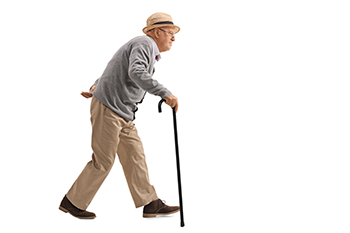Choosing the Right Walking Aid

Walking aids are indispensable for anyone with mobility issues, providing much-needed support, stability, and balance. Yet, selecting the appropriate walking aid is paramount, particularly for older adults. Studies have underscored the link between falls and improperly chosen walking aids or using them incorrectly. There are several types of walking aids, including canes, walkers, crutches, rollators, and walking frames. To narrow down the options, it is essential to assess individual mobility requirements, including balance, stability, and post-injury or surgical recovery. Obtaining accurate measurements, especially for cane height, ensures comfort and minimizes fall risk. Selecting an appropriate grip for comfort and support is key, as is considering walking aids with added stability features, like quadrupeds or rollators for those with balance concerns. Portability is another aspect to consider, with rollators ideal for outdoor use and lightweight canes or crutches for indoor use. If you are having trouble with balance or stability, it is suggested that you make an appointment with a chiropodist today for guidance tailored to your specific needs.
Falls are a common but preventable problem for older adults. If you would like to learn more about preventing falls, please consult with one of the specialists from Thornhill Foot Clinic. Our chiropodists can help you maintain the health of your lower limbs and your mobility.
Did you know that most falls occur in the home? Fortunately, there are many simple changes that you can make to the living environment to reduce the risk of falling.
In the Bathroom:
Install grab bars near toilets, bathtubs, and showers
Put non-skid mats on all surfaces that may get wet
In the Bedroom:
Keep a light near the bed so that you can easily turn it on if you have to get up at night
Keep the path from your bedroom to the bathroom clutter-free and well-lit
Consider installing a bed rail for added support
In the Kitchen:
Use non-skid mats
Wipe up any spills immediately
Move commonly used items to areas that are easily within your reach
In the Hallways:
Place handrails on both sides of the stairs
Install good lighting in the hallways and around the entire home
Keep hallways free of clutter
Don’t use throw rugs or small area rugs
In Other Living Areas:
Keep loose cables, cords, and wires near the wall and away from walking surfaces
Make sure that all carpets and rugs are secure firmly to the floor
Arrange your furniture so that it is not in your way when you walk
Use chairs and couches that you can easily get up from
If you have any questions, please feel free to contact our office located in . We offer the newest diagnostic and treatment technologies for all your foot care needs.
